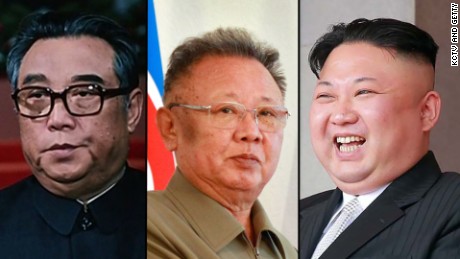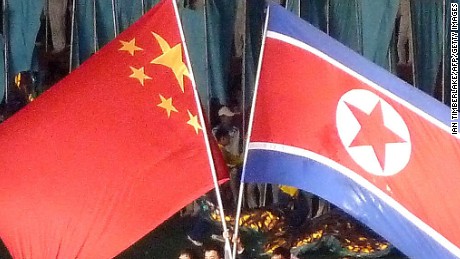Trump wary of ‘major, major’ conflict with North Korea as UN meets
(CNN)US President Donald Trump said Thursday not to discount the chance of a military conflict with North Korea even as his Secretary of State seemed to leave the door open for talks.
“There is a chance that we could end up having a major, major conflict with North Korea,” Trump told Reuters, amid an ongoing standoff over Pyongyang’s nuclear and missile programs.
He said he would prefer, however, to avoid conflict and peaceably achieve a non-nuclear North Korea.
“We’d love to solve things diplomatically, but it’s very difficult,” Trump said.
In an interview set to air Friday on NPR, Secretary of State Rex Tillerson said that direct talks with Pyongyang are “the way we would like to solve this.”
But he warned that North Korea “has to decide they’re ready to talk to us about the right agenda,” and that would not include pausing their nuclear program at its current level for a few years “and then resuming things.”
Tillerson will chair a special meeting of the UN Security Council on Friday to discuss North Korea, two days after a rare Senate briefing on the threats and possible action.
Mixed messages
Euan Graham, an expert on North Korea at Australia’s Lowy Institute, said the messaging from Washington “is all over the shop.”
“We’ve seen a shift of 180 degrees from Vice President (Mike) Pence’s comments in Seoul, when he said there would be no negotiations with North Korea until they had denuclearized,” he said.
A joint statement Wednesday by Tillerson, Secretary of Defense James Mattis and Director of National Intelligence Dan Coats said the administration’s approach aims to pressure North Korea by “tightening economic sanctions and pursuing diplomatic measures with our Allies and regional partners.”
Nick Bisley, an international relations expert at La Trobe University, said Washington is trying to “send a signal of toughness and resolve to Pyongyang while simultaneously holding open the door for negotiations and discussions.”
“The problem is the execution has been terrible,” he said.
He pointed to the large number of vacancies at the State Department as an explanation for the poor messaging, a situation that has concerned national security experts, frustrated lawmakers and confounded foreign diplomats.
Given the confused messaging coming out of Washington, John Delury, an expert on China-Korea relations at Seoul’s Yonsei University, said it remains to be seen if the Trump administration will be more proactive than its predecessors in pursuing diplomatic options.
“(Under Obama) they’d say the door was open but would never walk through it,” he said.
Time for talks?
Both China and Russia this week pushed for greater dialog on the North Korea issue, with Russian President Vladimir Putin calling for the resumption of six-party talks.
The talks — between the US, North Korea, South Korea, China, Russia and Japan — were intended to prevent the nuclearization of the Korean Peninsula, but they broke down in 2009 and multiple attempts to restart them have failed.
In the intervening years, North Korea has conducted four nuclear tests, including a purported hydrogen bomb test.
Chinese Foreign Minister Wang Yi said Thursday that China’s thinking on North Korea matches “Russia’s relevant proposals” and praised the countries’ “comprehensive strategic partnership.”
As North Korea’s main ally, China is seen as vital to any settlement of the nuclear issue, and Trump praised Chinese President Xi Jinping Thursday.
“He certainly doesn’t want to see turmoil and death,” Trump said in the interview. “I know he would like to be able to do something, perhaps it’s possible that he can’t.”
Delury said Trump’s praise for Xi was double-sided. “It comes with pressure to do something about North Korea,” he said. “That if Xi doesn’t solve this then there’s going to be ‘major, major conflict.'”









